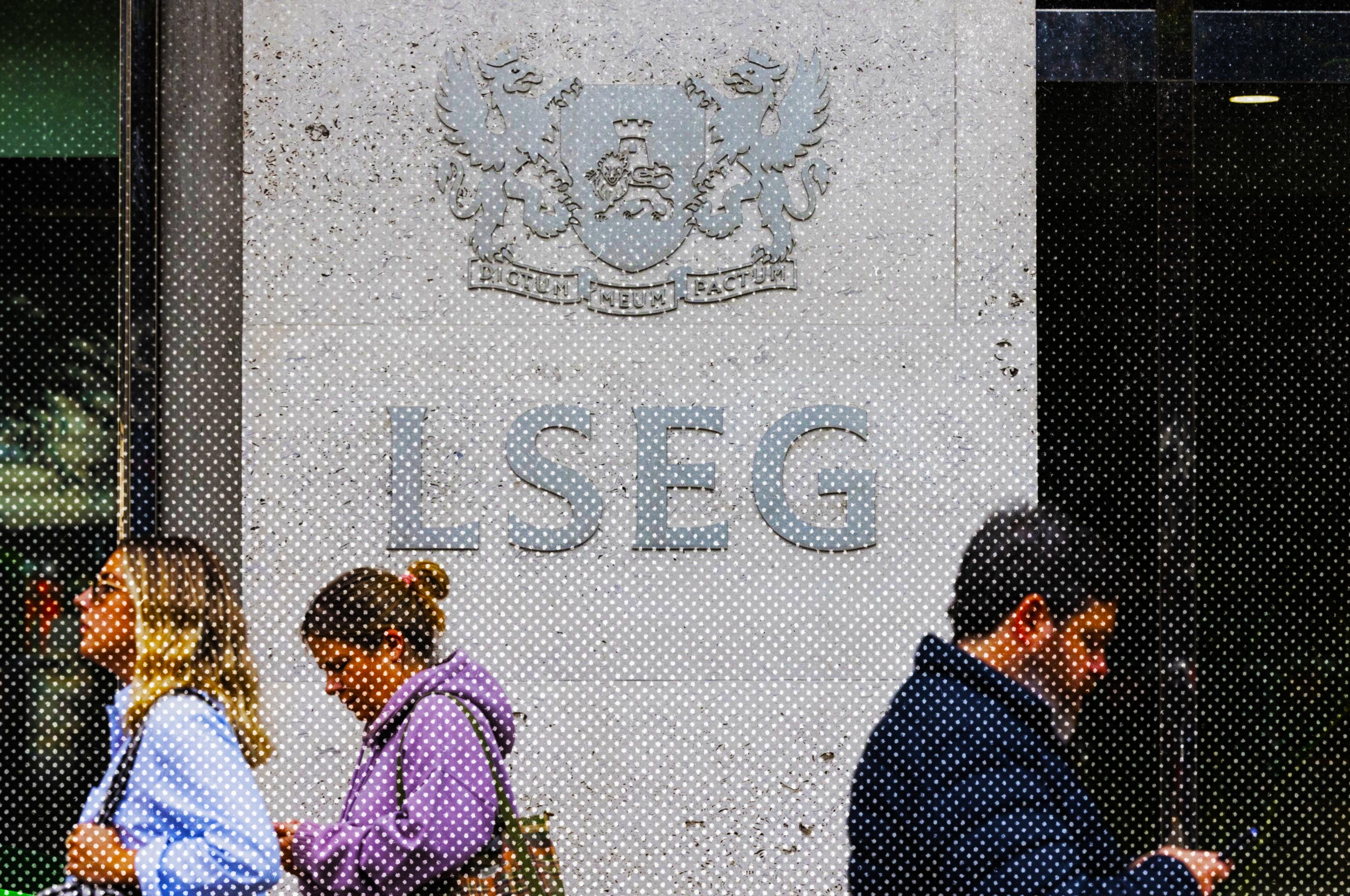Has UK equities' time come?
Falling inflation, likely cuts to rates and improving earnings present opportunities for investors

At 4 per cent of the global benchmark, it has been easy for investors to avoid the UK in recent years.
Uncertainty has not only impacted business confidence but investor appetite too.
With inflation now back at target, and expected cuts to the Bank of England base rate, this could strengthen investment options for the "too difficult" label sometimes ascribed to UK equities.
This report, which will explore the challenges and opportunities in UK equities, is worth 30 minutes of CPD.

(Chris Ratcliffe/Bloomberg/FTA montage)
(Chris Ratcliffe/Bloomberg/FTA montage)

(Luke MacGregor/Bloomberg/FTA montage)
(Luke MacGregor/Bloomberg/FTA montage)

(Chris Ratcliffe/Bloomberg/FTA montage)
(Chris Ratcliffe/Bloomberg/FTA montage)

(Chris Ratcliffe/Bloomberg/FTA montage)
(Chris Ratcliffe/Bloomberg/FTA montage)
Is it time to rethink allocations to the UK amid a possible regime shift?
The fanfare surrounding computer firm Raspberry Pi’s initial public offering is a sign for many that the UK is open for investors, but it remains to be seen how soon and when UK equities will regain full confidence.
Relative to other countries, the UK economy has experienced declining productivity growth, insufficient corporate spending on research and development, Brexit trade barriers and high exposure to companies that are less scalable – old economy versus new economy companies.
All of this has impacted investor confidence.
That said, it is important to note the UK economy is not the UK stock market. Around 75 per cent of FTSE 100 revenue comes from overseas, and around 60 per cent for the FTSE 250.
IPO trends
However, there has been a noticeable trend for companies to stay private longer as deeper pools of private capital have presented an alternative route for companies as they scale up and grow, away from the intense glare of public markets.
The IPO market in the UK slowed considerably during 2023, with a total of 23 IPOs on the London Stock Exchange – considerably lower than the numbers in 2021 and 2022, which were 126 and 64 respectively.
So far 2024 has been relatively slow, with a total of 6 IPOs year to date.
Alexandra Jackson, manager of Rathbone UK Opportunities Fund, notes that more companies are either coming to market at a later stage, often after a period of private equity ownership, or never coming at all.
“The prestige of a public listing has diminished – London should work harder to reverse this trend. Floating a high-quality, well run tech business in London that has risen well since, is a hugely important milestone for the UK market.”

Alexandra Jackson, Rathbones (Carmen Reichman/FT Adviser)
Alexandra Jackson, Rathbones (Carmen Reichman/FT Adviser)
Adam Avigdori, co-manager of the BlackRock UK Income Fund, adds: “The success of recent UK IPOs is a welcome signpost on perhaps a more active IPO market as we look forward.
“We anticipate a more active pipeline of potential transactions as we look ahead as the rate outlook stabilises, price expectations moderate and time pressure on exits materialises.”
The discount that UK-listed multinationals are trading on relative to global peers doesn’t really make sense.
Optimism as inflation falls
With inflation now back at target, Jackson says rates can come down, electoral uncertainty will be complete, and growth is on the up.
She adds: “The UK looks cheap and increasingly cheerful. We hear from global investors who are looking for London-listed equities to add to their portfolio, but the punchy weighting of commodity-led companies in the FTSE 100 still puts them off.
“Furthermore, over the long term, alpha in the UK actually comes from owning mid-caps over large.
“We would go further in our refinement: over the last 10 years, the companies that achieved over 10 per cent annual total shareholder return while offering a dividend yield of over 6.5 per cent are predominantly operating in niche areas, with a decentralised model, and are not in the FTSE 100.”
Chris Smith, investment manager, UK growth equities at Jupiter Asset Management, says a combination of very low starting valuations, improving earnings and attractive dividends means the UK could also offer better prospective returns than many other asset classes.
He adds: “With falling inflation and likely cuts to interest rates, now is the time to rethink allocations to the UK and position for a possible regime shift.
“There are already signs of a change in sentiment with the FTSE 100 and FTSE All Share indices reaching record highs this year, and the UK has retaken the crown for Europe’s most valuable stock market for the first time in two years.”

Chris Smith, Jupiter Asset Management (Carmen Reichman/FT Adviser)
Chris Smith, Jupiter Asset Management (Carmen Reichman/FT Adviser)
A recent study by Rathbones found that among wealth managers, financial advisers and financial planners across the UK, there were expectations of strong growth in UK equities over the next 12 months.
Eighty-one percent of these investors expected growth among large and mid-caps, although sentiment towards small caps was mixed.
We hear from global investors who are looking for London-listed equities to add to their portfolio, but the punchy weighting of commodity-led companies in the FTSE 100 still puts them off.
The report noted that in May this year the FTSE 100 reached record highs, and the findings suggest respondents were anticipating further strong returns.
In the FTSE 250 index the numbers looked similar. For the FTSE Small Cap Index the picture is more mixed.
A barometer of the UK economy, the Purchasing Managers’ Index, which is an index of the prevailing direction of economic trends in the manufacturing and services sectors, and is often associated with the direction of midcaps, underlined positive sentiment towards the UK economy.
Nearly all respondents to the Rathbones survey (86 per cent) expect to see the UK PMI Composite level rise during the next 12 months.
Role of UK equities
When it comes to the role of UK equities, Ben Kumar, head of equity strategy at 7IM, says they make a good diversifier.
This is because the collection of companies in the FTSE 100 is very diversified in terms of industry compared with other developed markets – healthcare companies, banks, energy companies, drinks companies, consumer products, industrials and miners.
Meanwhile, Smith says the UK, which trades on record low 11-12 times price to earnings multiples, compares very favourably with the US market, which is trading on record high PE multiples of 20 times, while it is also home to many internationally diverse businesses that are leaders in their individual sectors.
He adds: “The discount that UK-listed multinationals are trading on relative to global peers doesn’t really make sense. There is little reason why high-quality global firms should be penalised just because they’re listed in the UK. This suggests that an investment opportunity exists.
“While the value in the UK market is not being recognised by investors, it is being acknowledged by other market participants, mainly US corporates and private equity firms whose bids have often been at significant premiums to prevailing share prices. The low valuations are also reflected in the substantial buyback activity among UK corporates.”
Edward Park, chief asset management officer of Evelyn Partners, says: "There's still a bit of a hangover from the mini-budget, which impacted investor sentiment... there is still quite a lot of uncertainty for investors about what the future looks like in terms of investment policy in the UK, and what it looks like in terms of the taxation backdrop, etc."
He adds: "When we're thinking about portfolio construction [UK equities] provides a rich hunting ground for value equities. It is not the panacea to all of your investment needs. It is providing targeted opportunities in certain sectors, and because of the fact that the UK stock market has been out of favour, they are well priced at current levels."

Edward Park, Evelyn Partners (Carmen Reichman/FT Adviser)
Edward Park, Evelyn Partners (Carmen Reichman/FT Adviser)
Challenging times
This is a somewhat positive reflection of a market that has been unloved for some time.
According to Smith, money flows and the composition of the UK stock market have been big drivers of the challenges.
First, in the mid-1990s, the average UK defined benefit pension fund had 75 per cent of its money in equities and slightly more than 70 per cent of that in the UK. This resulted in more than 50 per cent of the portfolio in the UK stock market. Today, DB pension schemes have approximately 3 per cent invested in UK Equities.
To reinvigorate the investment cycle, the UK has to offer a committed long-term plan. There’s plenty to be excited about in the UK – high tech manufacturing and bioscience in particular – it just needs long-term stability to allow for proper planning.
Smith adds: “This wave of selling by pension funds is possibly towards the end now, and instead the level of share buybacks is towards record highs. Management teams believe their shares are undervalued and the best way to demonstrate that is to buy back shares.”
Second, the UK is overweight value sectors such as financials, oil and mining relative to the US, which has greater exposure to the technology sector. For instance, technology is 30 per cent of the US but just 1.5 per cent of the UK market.
He adds: “Technology giants in the US have been hugely successful investments but the valuation differential between the US market and UK market is now at extreme level – one market looks very cheap relative to history and the other market looks very expensive relative to history.”
Kumar says the main economic challenges facing the UK can also be put down to the lack of investment over the years in key areas like modern infrastructure, not just from government but from the private sector too.
The ongoing uncertainty about the economic relationship with the EU, remains a drag on growth through increased bureaucracy.
Reversing the tide
Kumar adds: “To reinvigorate the investment cycle, the UK has to offer a committed long-term plan. There’s plenty to be excited about in the UK – high tech manufacturing and bioscience in particular – it just needs long-term stability to allow for proper planning. An independent investment fund with a non-parliamentary horizon would be a good start.”
The government is trying to come up with a number of ways to push more investment into UK assets.
One is the British Isa: a new £5,000 allowance, in addition to the existing Isa allowance, intended to provide a new tax-free savings opportunity for people to invest in the UK, while supporting UK companies.
The government also introduced the Mansion House reforms: to get the largest defined contribution pension schemes to increase their investment in UK unlisted equities – at least 5 per cent of assets by 2030.
Smith says that while the British Isa is a positive move, it is a small step in the right direction. This is because the maximum investment is £5,000 and it is only allowed once the standard £20,000 allowance has been used up.
Conditions may be tough... this is when a healthy UK stock market can make a real difference to people’s lives.
He adds: “Even if every person who subscribes £20,000 to a Stocks and Shares ISA opened a British ISA and invested the full £5,000, it would generate a maximum of £4bn a year for UK equities. In the context of a £2trn+ stock market, this won't make a difference.
“There is also a risk of unintended consequences – increase portfolio concentration and it will only benefit the very wealthy who can afford to fill up the ISA. We need much more substantive change such as a cut to stamp duty on UK shares, removal of capital gains tax on UK stocks or reversing the infamous removal of dividend tax credits.”
Kumar says a more strategic allocation to specific areas of British industry is needed: “A better alternative would be allocating a portion of pension savings (opt-out possible), corporate taxes, or even national insurance to a sovereign wealth fund, rather than the general UK government budget. Ringfence the contributions, and invest for the long term."
He adds: “The mandate should consider return for savers, plus specific areas of benefit in the UK economy; whether that is ports and green energy, or large-scale housing projects – but could also include more radical approaches like investing in a challenger bank or telecoms provider or public amenity (Wembley Stadium etc).
“In all ways, I’d consider it as an anchor investor, with a return-focused mandate. It doesn’t bail things out – instead it’s seen as a stamp of approval by external investors; a project or business is both government approved and commercially viable.”
As a UK fund manager with significant investments in UK PLC, Smith says that while he is very keen to see the UK’s entrepreneurs, economy and corporations thrive globally, it is unrealistic to expect the reforms announced to make a meaningful difference to growth or investment in the UK in the short term, and there are still a lot of questions to answer,”
He adds: “We need more nitty gritty detail and that is where the success or failure of the reforms will lie. For example, how are ‘UK growth assets’ defined? Are there enough high-quality, unlisted investment opportunities in the UK for an additional £75bn of investment? What evidence suggests that unlisted assets will deliver higher, risk-adjusted after-fee returns to justify a higher allocation in pension portfolios?”
Meanwhile, Gervais Williams, head of UK equities and fund manager of the Diverse Income Trust at Premier Miton, says that as globalisation is displaced by Balkanisation and abundant market liquidity is replaced by a growing shortage of cash, this presents an opportunity for UK equities.
With reshoring and immigration restrictions, the mirage of quantitative easing "funny money" will not work any longer, which means customers and investors everywhere will become a lot more price-sensitive and it will become difficult for quoted companies to raise additional capital.

Gervais Williams, Premier Miton (Carmen Reichman/FT Adviser)
Gervais Williams, Premier Miton (Carmen Reichman/FT Adviser)
He adds: “With corporate profit margins near record levels, and stock market valuations such as the US unusually high, we expect both to drop back to prior norms.
“Conditions may be tough, but zombies with high debt, or those running cash flow-negative businesses, will be in serious trouble. We fear many will go bust, driving up unemployment, leading to consumers cutting expenditure and saving more in a vicious cycle.
“This is when a healthy UK stock market can make a real difference to people’s lives. Introducing a British Isa now will help UK-quoted companies acquire over-indebted but otherwise viable businesses from the receiver, inject additional capital and keep those staff from being unemployed. It is not only good business, but good for the entire electorate, irrespective of whether they are savers or non-savers currently.”

